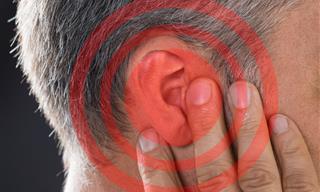10-30% of people worldwide suffer from sinus infections each year, and for many people, sinus problems tend to recur every year or even every season. This alarming tendency of frequent painful and debilitating sinus infections is not a simple task to wrap your head around.
Is there a reason why you or your loved ones suffer from recurrent sinusitis? It turns out there is a whole host of causes of chronic sinus infections, and in this article, we review the 7 most common ones.
Sinusitis is an inflammatory condition that affects the mucous membrane of the sinuses. An illustration of the area affected by the infection can be seen below.
A person suffering from sinusitis may exhibit the following symptoms:
- thick nasal mucus
- a plugged nose
- facial pain
- fever
- headaches
- a poor sense of smell
- a sore throat
- a cough
We discuss these and more symptoms in greater detail in a dedicated article about Sinus Infection Symptoms. Now let's finally discuss the 7 most common causes of chronic sinus infections.
1. A Deviated Septum
A nasal septum deviation is a disorder, which involves the displacement of the arch of the nose called septum. When you have a deviated septum, you are at a higher risk of developing a sinus infection because there is an obstruction blocking your nose.
Keep in mind that some people have a naturally bent nose, or simply a narrow nasal passage, so not only trauma can cause a deviated septum. In fact, about 80% of the population have a deviated septum without ever suspecting this.
2. Allergies
An allergic reaction commonly manifests itself in the form of a blocked or runny nose and watery eyes, because the allergen irritates your nose, causing the mucous membrane in your nose to swell up.
This swelling and discharge from your eyes and nose can spread to your sinuses as well, and this can lead to the inflammation of the area. If you know that you’re at risk of developing sinusitis, avoid the allergen at all costs and take your allergy medications to reduce the swelling.
3. Asthma
According to some estimates, 3 out of 4 asthma sufferers have chronic sinus infections.
Luckily, if you have asthma, you are most likely already taking antihistamines and steroids that can help prevent a sinus infection. If not, it is a necessary measure to prevent respiratory infections. In fact, you have to be especially careful at preventing inflammation in your sinuses, as sinusitis can worsen your asthma symptoms.
4. Pollution
For those of you who are urban dwellers, it may be interesting to know that there is a strong correlation between air pollution and sinusitis.
A 2017 animal study even managed to mimic chronic sinusitis symptoms in mice by exposing them to pollutants. So make sure to wear a mask if you know that the air is polluted in your area and you’re prone to sinus problems.
5. A Weakened or Compromised Immune System
Individuals who have a weakened immune system have a greater likelihood of developing all kinds of chronic respiratory infections, including, but not limited to bronchitis, pneumonia, and sinusitis.
This category includes infants, children, pregnant women, the elderly, people with other chronic conditions, patients with transplants, and many others. Make sure to prevent any colds or other infections, as your immune system will likely not be able to resist the germs.
6. Frequent Colds
The common cold is the leading cause of an acute sinus infection, as a stuffy nose or an infection in your nose can quickly and easily spread to your sinuses.
So, if you sneeze and blow your nose all winter, you’re at a higher risk of developing a sinus infection. If you have a cold that persists for longer than 10 days, it's best to talk to your doctor, as you may have a sinus infection.

7. Nasal Polyps
Nasal polyps are growths in your nasal cavity that can obstruct the air passageway and cause inflammation in the nose and sinuses.
What’s worse, nasal polyps themselves can mimic sinusitis and nasal congestion symptoms, such as a stuffy nose and a decreased sense of smell. The polyps have to be treated or removed surgically, otherwise, they can develop and obstruct the nasal cavity almost completely.
 A friendly reminder that we urge you to talk about all of your health concerns with a doctor. The information is provided in this article for information purposes only and is not intended to diagnose an illness.
A friendly reminder that we urge you to talk about all of your health concerns with a doctor. The information is provided in this article for information purposes only and is not intended to diagnose an illness.
 Go to BabaMail
Go to BabaMail




























































